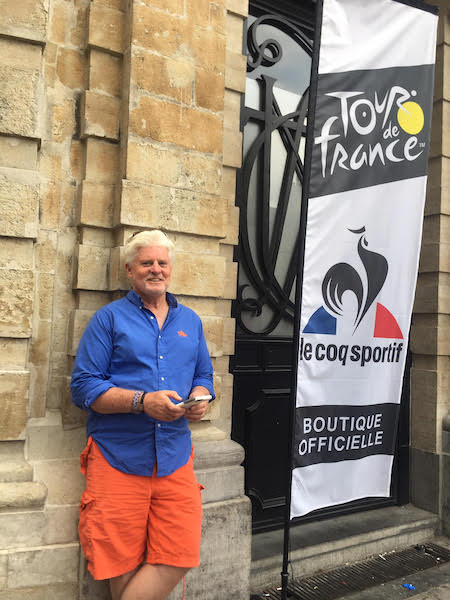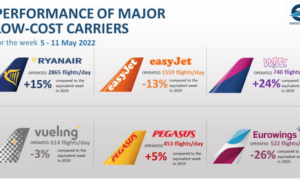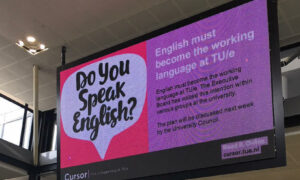(Editor’s note: This is for the Americans. The rest of you EEA citizens who are already paying next to nothing to send your students to European universities just move along … nothing to see here. Also, we’re not including British schools because of the uncertainty of Brexit and because they’re crazy expensive.)
The news earlier this year that movie stars and investment bankers got their kids into the United States’ most prestigious, highly selective universities with bribes, fraud and payoffs, not on merit, set off a wave of introspection, with Americans wondering how we got to such a sorry place.
Because other than the One Percent, the rest of us were under the impression the right school is better than the name school. So, clearly this scandal had nothing to do with education and everything to do with status: We’re special and you have to accept our our children by virtue of our celebrity and wealth. Oh, and here’s a million bucks.
That’s just one symptom of what ails American post-secondary education. What’s killing college for the masses is tuition.
Just as the U.S. News & World Report released its annual list of the best U.S. universities, MarketWatch posted that a four-year degree from the No. 1 ranked school – Princeton University – will cost you $73,450 per year in tuition, with a four-year degree totaling $294,000! That’s insane.
But we’re here to tell you about a better way that – in some cases – will cost you pretty much nothing other than the fees and housing.
If you really want to impress people at the country club cocktail party, just let this drop: “Yeah, Princeton is okay I guess, but we’re sending our daughter/son to school in Europe.”
Smart people will be freakin’ impressed. Why? Because you can get a MIT- or Stanford-quality education for far less than you’d pay for that crummy land-grant party school in Nowheresville, Midwest.
Take my daughter Lale, who goes to Maastricht, a university – let’s just say it – utterly unknown to most Americans. But her professors are top-notch and the problem-based learning approach works really well for Lale.
Did I fantasize about her going to Harvard or Princeton? Yeah. But we did NOT have to pay a $1 million bribe to get her in … she got herself into Maastricht, graduating with 6’s from an international IB program here in the Netherlands.
These days, many – if not most – European universities offer graduate programs in English.
Obviously, we’re biased toward Maastricht.
(To inject a note of reality, when you go to Stanford, MIT or an Ivy League school, you’re not just paying for professors and programs. You’re buying a life-long network of people who can advance your career. With the exception of the French business schools, there really isn’t a comparable network in Europe.)
I pinged Dispatches contributor Lily Cichanowicz, who graduated from Cornell University, an Ivy League school ranked No. 19 on Times Higher Education list of the world’s best universities, and asked her for a direct comparison to Freie Universität in Berlin.
Lily, quick question – based on your experiences, how would you say Freie Universität in Berlin compares to Cornell, which is a “Name” school for Americans? Is the quality of education comparable? Are your professors as accomplished?
From your personal experience, do you think having Cornell on your CV opens more doors than if you’d gone to school in Europe?
Thanks, Terry

LILY CICHANOWiCZ
Lily:
Honestly, I think being at Cornell was a disillusioning experience for me, because alongside studying sociology I was literally watching how the elite class of American society reproduces itself. In other words, I – a smart kid but with zero family connections or any particular social capital – was studying alongside so many entitled frat boys who could do whatever to whomever and hardly had to study or work but were then promised jobs making 6 figures in investment banking right after college.
Anyways! I can’t speak so much to undergraduate experiences in German uni, but I’ve been impressed with the standards of this master’s program at FU (lol, still funny to say that), both in terms of the other students as well as the professors and what’s generally expected of us.
It occasionally impresses people here in Europe that I went to Cornell, but for the most part people haven’t heard of it or aren’t really as in touch with the whole Ivy League thing. It’s always funny when I go back to the US and I see how much more it matters there.
Hope this helps!
Terry to Lily:
It does … for my cousins, it was all about going to Princeton and UVa. Even in their dotage, that’s STILL their identity, as I think I’ve told you before. Good to know that FU (hah!) suits you.
On some level, I wonder if the children of the celebs and the investment banker/ hedge fund guy ever even wanted to go to Yale or wherever? Rich parents living vicariously through their kids ….
Let’s look at our alternatives. And know that some of the schools we’re putting on our list are crazy difficult:
• Maastricht University: I’m going to put this one first because we know the school inside and out. All of Lale’s lecturers have been published in academic journals. In her first year, she had one standout lecturer, Harry Osterhuis, who is the leading expert on Richard von Krafft-Ebing, a key figure in constructing the concepts of modern sexuality. Oosterhuis literally wrote the book on Krafft-Ebing.
Tuition: For EU students, Maastricht is about 2,000 euros. For non-EU students such as Lale, she pays about 7,500 euros per year in tuition for her three-year program, not counting her apartment and living expenses.
Classes in English: The vast majority of classes at Dutch universities are taught in English.
Compared to Princeton: Lale will pay about one-tenth of what those fancy-pants parents are paying.
• Freie Universität in Berlin
Tuition: Zero, zilch, nada. That said, one semester at Freie Universität in Berlin will cost you 312 euros in administrative fees, including a heavily subsidized transportation pass for the duration of the semester, along with other services.
Classes in English: FU has one Bachelor program (North American Studies) in English and 20 master’s programs in English. You can see them all here.
What it’s like, per Lily: The approach at Freie is definitely pretty free-form, though, which is different from North American uni. I think that it’s absolutely assumed/expected that we are taking the initiative to be researching and working far beyond what is compulsory, and I know this jives with some people better than others.
I personally, perhaps after being at a school (Cornell) with such “extra” college culture, really appreciate the more barebones and free-form structure. I feel like grades and assessments at the graduate level are more formalities, and other factors like whether you get your work published or have research experience matter more.
• ETH Zurich
Along with Oxbridge, ETH Zurich is ranked at the top of Europe’s elite unis. And, of course, Albert Einstein famously was a student, then a professor here.
Snob appeal: Times Higher Education ranks ETH Zurich at No. 11 in the world, ahead of Johns Hopkins, Penn and Columbia.
Tuition: ETH Zurich is publicly funded and charges practically no tuition, with the total costs about 1,229 Swiss francs per year, or about 1,100 euros. Of course, this is Zurich, one of the most expensive cities in the world, so going to university here will not be inexpensive.
Classes in English: Like almost every major European university, it offers a number of master’s programs in English. Programs include architecture, biology, chemistry and physics.
You can see the master’s degree programs here.
• For aspiring engineers, both Technical University of Delft and Technical University of Eindhoven are top-notch.
Where they differ is, Delft is stronger in next-gen programs (see the tiny drone above) while TU/e has the Flagship Program where students and professors do R&D with some of the most advanced high-tech companies in the world.
But, TU/e administrators just announced they’re investing 100 million euros during the next five years to create a new AI center.
Tuition: Both have the same annual tuition of about 10,000 euros per year for non-EU students. (Compare that to Purdue University at about $30,000.)
Snob appeal: Internationally, Delft is considered a world-class engineering program.
Caveat emptor: Okay, here’s where reality kicks in. Delft is very, very difficult. Some of Lale’s friends and classmates went there and struggled with the huge class sizes and the demanding course load. They’ve since left for other Dutch engineering programs.
• KU Leuven: European friends tell us this one of the most respected schools in Europe, and some of our clients work with KU Leuven in deep-tech research. Times Higher Education ranks the school No. 48 in the world, higher than Brown, UNC Chapel Hill and UC Davis.
Snob appeal: Only if you’re European. But, with its setting and ancient buildings, it looks like an elite European university should look.
Tuition: How does 3,500 euros per year sound?
English: KU Leuven has multiple master’s and doctoral programs in English including architecture, biomedical engineering and communications sciences/digital media and society.
• The Sorbonne: Classes in English would have been a sacrilege at the Sorbonne back in the day. But with the digitalization and globalization of the world economy, this most famous of all French universities now offers a surprising number of programs/degrees in English.
Classes in English: Most of the offerings are master’s programs in economics, math, computer science and management.
There are a ton of other options in law, including a summer legal program in a partnership with Cornell and even a JD in global business law and governance in partnership with Columbia University.
You can see all the options here.
Snob appeal: Are you kidding? “Yeah, little Suzy’s over in that there Paris studying at the Sore Bun. She had to turn down Princeton.”
Tuition: About 3,000 euros per year for non-EU students.
A note: Unless you’re just dead set on your student going to Lincoln, Nebraska and cheering on the Cornhuskers, Europe has dozens of schools in the Times Higher Education Top 100.
The country with the most options for English speakers, though they charge tuition, is the Netherlands with:
• Delft at No. 58
• Wageningen at No. 59
• Amsterdam at No. 62
• Leiden at No. 68
• Erasmus Rotterdam at No. 70
• Utrecht Universiteit at No. 74
• Groningen at No. 80

About the author:
Terry Boyd is co-founder of Dispatches Media, based in Eindhoven, Netherlands. Boyd has been a military reporter, business reporter and an entrepreneur, founding Insider Louisville, a pure-play digital news platform, in 2010. Boyd & Family are long-time expats and have lived in Turkey, Germany and the Netherlands.
Co-CEO of Dispatches Europe. A former military reporter, I'm a serial expat who has lived in France, Turkey, Germany and the Netherlands.















